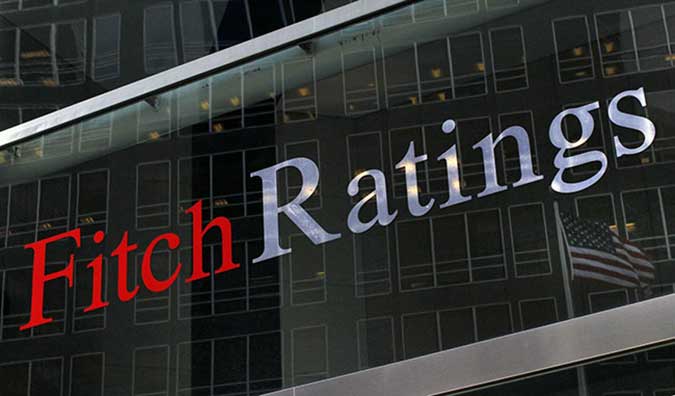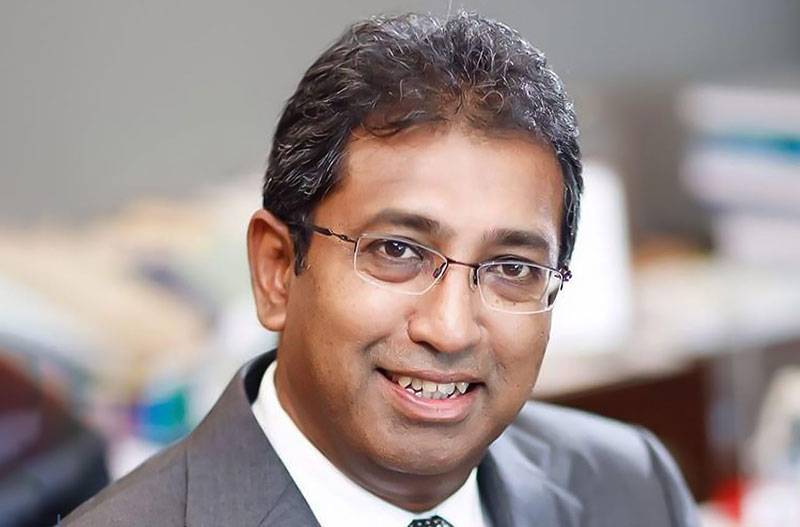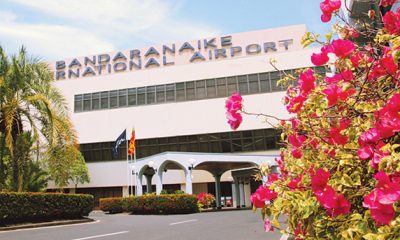News
Domestic Debt Restructuring plan should reduce funding and liquidity risk for non-bank financial institutions – Fitch

Sri Lanka’s proposed government debt restructuring plan should reduce funding and liquidity risk for non-bank financial institutions (NBFIs), Fitch Ratings said, issuing a press release on Friday.
It said that Sri Lankan government’s debt restructuring plan avoids direct impact on the local-currency government debt holdings of NBFIs and commercial banks, easing uncertainty over the entities’ capital, funding, and liquidity profiles.
Nonetheless, the proposal is only one aspect of the sovereign’s debt sustainability plan, and the weak economic environment continues to pose downside risk to the sector, Fitch said.
Sri Lankan NBFIs’ government debt holdings mainly comprise local-currency treasury securities to meet regulatory liquid-asset requirements and for investment returns.
Finance and leasing companies (FLCs) have boosted government debt securities holdings amid a weak economic outlook, lackluster lending opportunities and a preference for stronger liquidity buffers at a time of extreme market uncertainty, the press release said.
However, these holdings are not excessive, at around eight percent of sector assets at end-March 2023 (they were five percent at end-March 2020), but any direct impact from a government restructuring plan would have added to asset quality and earnings pressure arising from Sri Lanka’s difficult economic backdrop.
On Wednesday, Fitch downgraded Sri Lanka’s Long-Term Local-Currency (LTLC) Issuer Default Rating (IDR) to “C” from “CC.”
A day earlier, Fitch said that the Sri Lankan government’s domestic debt restructuring proposal was a significant step in resolving uncertainties in the local banking sector.The Sri Lankan Parliament approved the government’s domestic debt restructuring plan on 01 July.
Given below are excerpts of the press release: “These securities also comprise a larger proportion of banking-sector assets, and any losses arising from a restructuring could have further constrained banks’ capacity and willingness to provide funding to the NBFI sector. Foreign-currency denominated Sri Lanka Development Bonds will be subject to restructuring, but Fitch-rated NBFIs have no exposure to these instruments.
“We also do not expect the latest proposal to prompt a loss of depositor confidence in the banking system that would raise contagion risk for NBFIs’ deposits and bank funding lines. For more analysis on the implications for the banking sector, see Sri Lanka’s Domestic Debt Plan a Significant Step for Resolving Bank Uncertainty.
“Fitch views the funding and liquidity profiles of Sri Lankan NBFIs as closely linked to that of banks, given the NBFIs’ dependence on banks as a funding source. FLCs sourced approximately 73% of total non-deposit funding from other financial institutions as at end-March 2023, of which the bulk would be from banks. Similarly, banks are major funding providers for other NBFI sub-sectors, such as securities firms. FLCs’ credit drivers are also linked to those of banks due to their bank-like business models, common prudential regulator and predominant domestic exposure.
“Sri Lankan NBFIs continue to face significant downside risks beyond those addressed in the recent proposal. The economy contracted by 11.5% in 1Q23, pressuring the FLC sectors’ already-high non-performing loan ratio of 16% as at end-March 2023, while higher funding costs have crimped net interest margins and profitability. We expect economic conditions to remain difficult, particularly for FLCs’ largely sub-prime customer base, despite a modest improvement in inflation, interest rate and exchange rate trends in recent weeks.
“Capital markets are likely to stay volatile despite recent positive moves, keeping the financial prospects of securities firms less predictable in the near term. Any resistance from other government debt holders could also hold back the proposal and raise fresh doubts for the domestic financial system.
The debt announcement and subsequent sovereign rating action do not directly impact Fitch’s national ratings on Sri Lankan NBFIs. The ratings remain on Rating Watch Negative (RWN) due to ongoing operating environment risks, which could weaken NBFIs’ credit profiles relative to other entities on the national ratings scale. We would look to resolve the RWNs upon greater stability in the domestic economy and financial markets, and better visibility on how the economic downturn will affect NBFIs’ franchises and financial profiles. This could require more clarity on the final outcome of the debt restructuring, including on foreign-currency debt, and the impact on the banking and corporate sectors.”
Latest News
The sun will be directly overhead Colombo, Awissawella, Talawakelle, Dimbula, Galakumbura and Dambagalla at about 12:12 noon today [07]

On the apparent northward relative motion of the sun, it is going to be directly over the latitudes of Sri Lanka during 05th to 14th of April in this year.
The nearest areas of Sri Lanka over which the sun is overhead today (07th) are Colombo, Awissawella, Talawakelle, Dimbula, Galakumbura and Dambagalla at about 12:12 noon.
News
MoU on Defence a significant new addition to Ranil-Modi consensus

Defence Secy says a decision was taken at 2023 Defence Dialogue
Contrary to claims that the MoU/agreements finalised during Indian Prime Minister Narendra Modi’s state visit here were in accordance with an understanding between former President Ranil Wickremesinghe and PM Modi in July 21, 2023, the MoU on Defence Cooperation is a new addition.
A joint statement issued on July 21, 2023, soon after the conclusion of Wickremesinghe’s visit, didn’t refer to an MoU on defence cooperation.
Premier Modi disclosed the decision to enter into an MoU on 16 Dec., 2024 at a joint press conference addressed by him and President Anura Kumara Dissanayake.
A media statement issued by the Indian High Commission in Colombo quoted the Indian PM as having said that President Dissanayake and he had agreed that the two countries’ security interests were interconnected. “We have decided to quickly finalise the Security Cooperation Agreement.”
President Dissanayake, in his address, didn’t refer to the proposed MoU on defence cooperation. The Presidential Media Division quoted President Dissanayake as having said that they exchanged views on cooperation in the fields of defence and security, power and energy, training and capacity building, education, agriculture and social security.
However, retired Air Vice Marshal Sampath Thuyakonttha, who signed the MoU on Defence Cooperation, in his capacity as the Defence Secretary, said that they had agreed to strengthen defence relations through an MoU during Defence Dialogue in 2023.
Responding to concerns expressed in some quarters about the MoU at issue, Thuyakonttha, a veteran Mi 24 helicopter gunship pilot, emphasised that the agreement on the MoU had been reached in keeping with the instructions issued by the Secretary to the President in January this year.
In addition to the MoU on Defence Cooperation, the two sides finalised six other MoUs/agreements. They dealt with Implementation of HDVC interconnection for import/export of power, cooperation in the field of sharing successful digital solutions implemented at population scale for digital transformation, multi-sectoral grant assistance for Eastern Province, cooperation in the field of health, medicine, etc.
India, Sri Lanka and UAE have agreed to develop Trincomalee as an energy hub.
Milinda Moragoda, who served as Sri Lanka’s High Commissioner in New Delhi during the August 2021-Oct 2023 period and played a critical role in negotiations, stressed the pivotal importance of going ahead with the MoU/agreements.
In response to The Island queries regarding the latest developments, Moragoda said that the progress made on the economic integration and connectivity side was extremely encouraging. Especially, the concrete steps taken to establish connectivity in power, petroleum and the development of Trincomalee as an energy hub, he said.
“The fact that trilateral cooperation between India, Sri Lanka and selected third countries will become part of our future development strategy, with the formal entry of the UAE as a partner in the Trincomalee energy hub initiative is a very important step forward.”
Moragoda said: “The establishment of a framework to share successful digital solutions between India and Sri Lanka is also another positive development.
“It is critical that both parties now focus on the speedy implementation of all the agreements that have been reached.
“Future consideration should be given to developing road and rail connectivity as well.
“We should all understand and absorb that the physical connectivity that would be established in power, petroleum and other sectors will link us directly to India, the Middle East and Europe making us potentially a key global hub at a pivotal point in world history.
“The understandings that have been reached with India could become critical for Sri Lanka’s immediate economic survival and development as we cope with the monumental disruptions taking place in the international economic environment and geopolitical sphere at the moment.
“Sri Lanka is in an extremely vulnerable position and will have to very quickly work out a survival strategy through which we can diversify our foreign income and investment sources while arriving at an understanding with the US in the short term.
“As we enter an era where geoeconomics will become more important than plain economics, the agreements reached during the visit of Prime Minister Modi could help lay an initial foundation for Sri Lanka’s future developmental direction.”
By Shamindra Ferdinando
News
Harsha says govt. grabbed credit for what he initiated

Dambulla cold storage facility:
SJB Colombo District MP Dr Harsha de Silva has said he is happy that the government is continuing with his projects after changing their names.
Speaking to the media after Indian Prime Minister Narendra Modi had inaugurated a 5,000-metric-ton cold storage facility in Dambulla, Dr de Silva said the construction of that facility had been initiated in 2019 with a grant from India, during his tenure as Minister of Economic Reforms. The name of the project, Prabhaswara, had been changed, he claimed.
Dr de Silva said he had not been informed of the opening of the storage facility.
He said a plaque had been installed with names of the Indian prime minister and President Anura Kumara Dissanayake inscribed on it in violation of the NPP’s pledge that the names of its leaders would not be displayed in that manner.
Dr de Silva that he was genuinely happy about the opening of the country’s first agricultural storage complex capable of controlling temperature and humidity.
“Due to the collapse of the Yahapalana government, we were unable to complete the project. Later, those who came to power had no desire to finish the work. I believe that this government will ensure that farmers will benefit from the business plan we developed.
by Dhammika Salwathura
-

 Features1 day ago
Features1 day agoStarlink in the Global South
-

 Business2 days ago
Business2 days agoDaraz Sri Lanka ushers in the New Year with 4.4 Avurudu Wasi Pro Max – Sri Lanka’s biggest online Avurudu sale
-

 Business3 days ago
Business3 days agoStrengthening SDG integration into provincial planning and development process
-

 Business2 days ago
Business2 days agoNew SL Sovereign Bonds win foreign investor confidence
-

 Sports4 days ago
Sports4 days agoTo play or not to play is Richmond’s decision
-

 Business9 hours ago
Business9 hours agoColombo Coffee wins coveted management awards
-

 Features1 day ago
Features1 day agoModi’s Sri Lanka Sojourn
-

 Latest News6 days ago
Latest News6 days agoIPL 2025: Rookies Ashwani and Rickelton lead Mumbai Indians to first win























